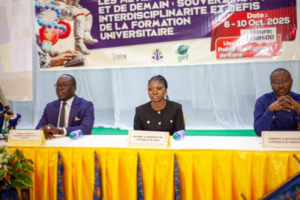Nigeria is taking bold steps to strengthen its commitment to the Sustainable Urban and Rural Water Supply, Sanitation and Hygiene (SURWASH) programme. The Minister of Water Resources and Sanitation, Prof. Joseph Utsev, has passionately urged state governments to show greater dedication to the initiative. He emphasized that their involvement remains vital for accelerating access to clean water and improved sanitation across the nation.
Prof. Utsev explained that the SURWASH programme stands as a central pillar in Nigeria’s effort to expand safe water and sanitation services. Through stronger collaboration, he noted, the country can make steady progress toward achieving nationwide coverage. According to him, the responsibility for ensuring clean water does not rest solely with the federal government. It also lies with each state that must play its part in improving public health and living standards.
He stressed that when states commit fully, the impact becomes visible in healthier communities and cleaner environments. Consequently, families can live with dignity, children can attend school regularly, and communities can thrive economically. Prof. Utsev reminded leaders that water and sanitation influence every sector of development, from agriculture to education. Therefore, prioritizing SURWASH means investing directly in the nation’s future.
Across Nigeria, many communities still depend on unsafe water sources. As a result, they face preventable diseases, reduced productivity, and recurring poverty. However, through SURWASH, there is growing hope for a lasting solution. The Minister urged state officials to align their plans with federal strategies to accelerate results. He insisted that consistency, transparency, and local ownership would determine the success of the programme.
Furthermore, Prof. Utsev encouraged state leaders to embrace innovation in implementing water and sanitation projects. He explained that effective use of technology and community participation can significantly improve service delivery. In his view, each successful project creates a ripple effect that inspires more action. Therefore, collaboration must remain continuous, inclusive, and driven by measurable outcomes.
He also pointed out that the SURWASH initiative supports Nigeria’s progress toward the Sustainable Development Goal on clean water and sanitation. By working together, the federal and state governments can close existing gaps and ensure equal access for all citizens. Prof. Utsev emphasized that progress depends not on promises but on sustained action and accountability.
Importantly, he reaffirmed the federal government’s readiness to support states with technical expertise, funding, and monitoring tools. Still, he maintained that local authorities must demonstrate strong leadership and community engagement. When everyone plays their role, the results are immediate—cleaner water, safer sanitation, and healthier citizens.
Every effort invested in SURWASH, he said, represents a step toward a resilient and prosperous Nigeria. With determination, cooperation, and shared responsibility, the nation can achieve its water and sanitation goals faster. Prof. Utsev concluded that the real success of the programme lies in teamwork, commitment, and unwavering focus on people’s wellbeing.
Ultimately, Nigeria’s journey to universal access to safe water and sanitation depends on the choices made today. Through strong partnerships and decisive action, the country can build a cleaner, safer, and healthier future for all.






